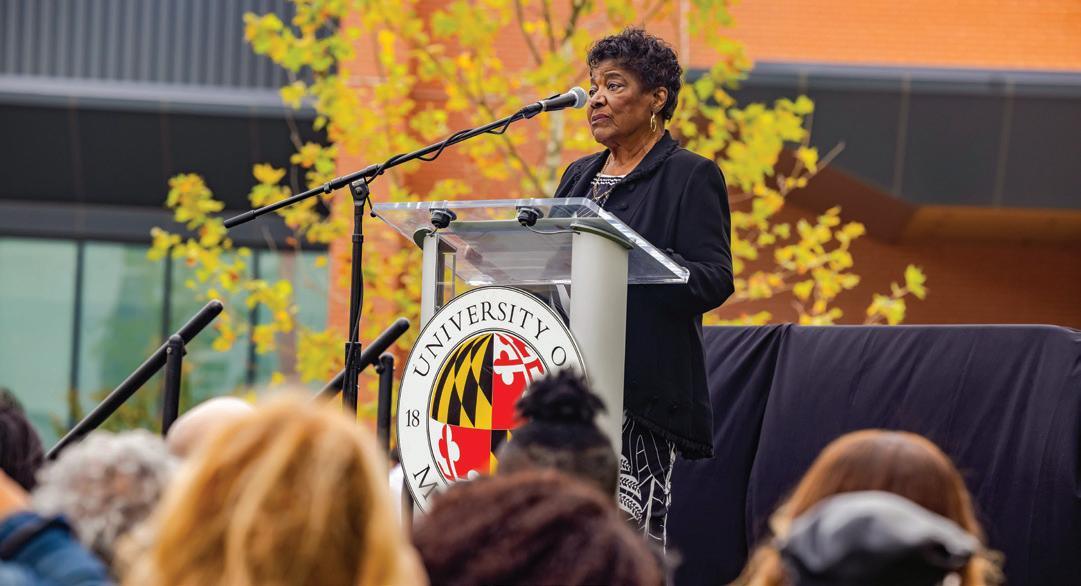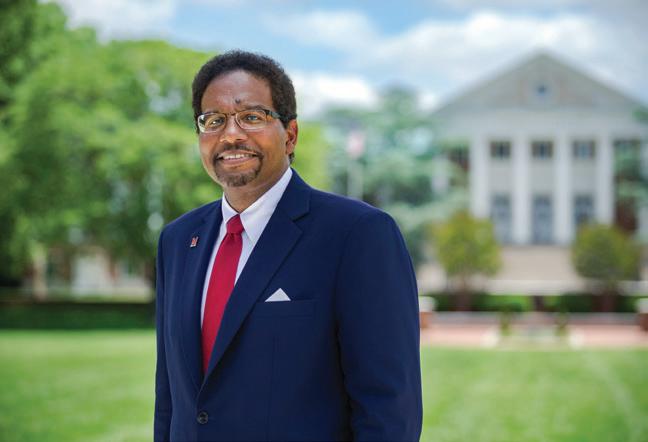
1 minute read
WE PARTNER TO ADVANCE THE PUBLIC GOOD
Reaching New Frontiers Together
IonQ, the leading developer of quantum computing devices, and the University of Maryland formed a $20 million partnership to create the National Quantum Laboratory (Q-Lab) at Maryland. It is the nation’s first user facility that enables the scientific community to pursue world-leading research through hands-on access to a commercial-grade quantum computer, and gives UMD-affiliated students, faculty, researchers and staff an unprecedented opportunity to gain experience with IonQ’s industry-leading, trapped-ion quantum computer hardware and collaborate with IonQ scientists and engineers.
A University of Maryland-led project funded by the U.S. Department of Agriculture and the National Science Foundation is using high-tech approaches to restore Chesapeake Bay oyster populations (1) nearly wiped out by overharvesting and disease. Researchers are using robotic “precision farming” techniques from landbased agriculture to give watermen objective data that can better guide basic decisions such as where to plant oyster larvae and steer a boat to find fully grown ones.
A gift from Andy and Julie Klingenstein ’80 to the Philip Merrill College of Journalism is creating a local news collaborative (2) and paid internship program to give students valuable real-world experience while bolstering reporting resources in Maryland.


As part of the University of Maryland Strategic Partnership: MPowering the State, the University of Maryland, College Park and University of Maryland, Baltimore are collaborating with the University of Maryland Medical System and Montgomery County to establish the University of Maryland Institute for Health Computing (3). Located in North Bethesda, the new institute will leverage advances in artificial intelligence and computing and use de-identified health data to create algorithms that will help diagnose, prevent and treat diseases in patients across the state.
As part of a statewide program to expand broadband access, the University of Maryland Extension is providing $6 million to address the digital divide (4) that disproportionately affects residents in Baltimore and rural counties, low-income and older residents, and people of color through training, competency and education initiatives, and helping people sign up for access and acquire a device.











